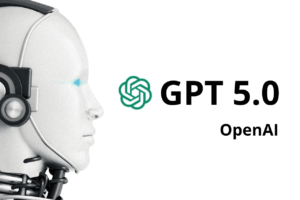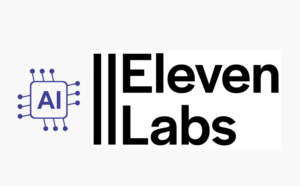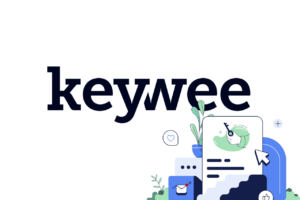AI Tools for Business: A Comprehensive Guide

In today’s digitally-driven landscape, businesses are constantly striving for innovative solutions to maintain their competitive edge. Among the array of transformative technologies, Artificial Intelligence (AI) stands out as a powerful tool capable of revolutionizing various facets of business operations. From fledgling startups to multinational corporations, integrating AI tools into business strategies has become imperative for sustained success.
Understanding AI
Artificial Intelligence, often referred to as AI, is about making machines, like computers, think and learn like humans do. This means they can do things like learning from experiences, figuring things out, understanding language, and recognizing things they see or hear. Since it first started in the 1950s, AI has gotten a lot better. Nowadays, we see AI all around us, like in voice assistants such as Siri or Alexa, and in personalized suggestions we get on Netflix or Amazon. It’s become a normal part of our daily lives.
Generative AI Tools
Generative AI represents a subset of AI endowed with the capacity to generate novel content. It finds utility in diverse applications including composing emails, generating reports, crafting graphics, and more. A prominent instance of generative AI is ChatGPT, an AI model engineered by OpenAI capable of producing text resembling human speech based on provided input. By automating mundane tasks, generative AI tools liberate substantial time and resources for businesses, enabling them to focus on strategic decision-making and fostering innovation.
AI for Sales and Marketing

AI in sales and marketing enhances customer connections, predicts trends, and personalizes interactions. Tools like Salesforce’s Einstein AI and Marketo’s ContentAI analyze customer data to predict buying behavior. Insights drive targeted campaigns, boosting engagement and sales.
For example, let’s say a company sells sports equipment. By using AI tools to analyze data about their customers’ past purchases and browsing behavior, they can identify patterns that indicate when someone might be interested in buying new equipment, such as after they’ve been browsing running shoes or sports apparel. With this information, the company can send targeted marketing emails or ads promoting their latest products, increasing the chances that customers will make a purchase.
Additionally, AI can help businesses engage with customers on a more personal level. For instance, if a customer visits a company’s website and starts browsing for a specific type of product, AI-powered chatbots can offer personalized recommendations based on their preferences and past purchases. This not only makes the shopping experience more convenient for the customer but also increases the likelihood of them finding something they want to buy.
Overall, AI empowers businesses to better understand their customers, anticipate their needs, and tailor their marketing efforts accordingly. By leveraging these insights, companies can create more targeted and engaging campaigns that drive sales and foster stronger relationships with customers.
AI for Meetings

Meetings are really important for businesses, but sometimes they can take up a lot of time and not be very efficient. AI tools can help make meetings better. There are platforms like x.ai and Clara that can help with organizing meetings. They can check when everyone is available, set up what needs to be talked about, and even take notes during the meeting. By using these tools, businesses can make meetings go smoother and get more done in less time.
Pitfalls of AI
While AI offers many benefits, it also brings some important challenges that businesses need to address. One major concern is about keeping data safe and private. Businesses must be careful with how they handle sensitive information to protect their customers’ privacy.
Another issue is relying too much on AI. If businesses depend too heavily on AI without human oversight, mistakes can happen. It’s important for businesses to be watchful of these risks and have plans in place to deal with them.
To put it simply, AI can be really helpful, but it also has its downsides. Businesses need to be careful with data and not rely too much on AI without human supervision. They should have plans ready to handle any problems that might come up.
Determining the Right AI for Your Business
Choosing the right AI tool for your business requires thoughtful evaluation across multiple aspects:
- Specific Business Needs: Understand what your business requires from an AI tool. Consider areas where automation or data analysis could improve efficiency or decision-making processes.
- Cost-Effectiveness: Assess the financial implications of implementing an AI tool. Consider not only the initial cost but also any ongoing fees or maintenance expenses. Compare the potential benefits against the investment required.
- User-Friendliness: Look for AI tools that are intuitive and easy for your team to use. Complex interfaces or steep learning curves can hinder adoption and reduce the tool’s effectiveness.
- Vendor Support: Evaluate the level of support provided by the AI tool vendor. Ensure they offer adequate assistance for implementation, troubleshooting, and ongoing usage. Reliable support can mitigate issues and ensure smooth integration into your business processes.
- Integration Feasibility: Consider how well the AI tool will fit into your existing workflows and systems. Compatibility with your current technology stack is crucial for seamless integration and maximum efficiency.
By carefully considering these factors, businesses can effectively leverage AI tools to streamline operations, improve decision-making, and gain a competitive edge in today’s dynamic business environment. This strategic adoption of AI fosters innovation and efficiency, driving sustainable growth and success.
Wrapping Up
In summary, AI integration is now vital for businesses to stay competitive. While it offers numerous benefits, challenges like data privacy and overreliance must be navigated. By carefully evaluating needs, costs, usability, vendor support, and integration feasibility, businesses can leverage AI effectively for growth and success in today’s dynamic landscape.
More AI tools:
FAQs
Q1: What is Artificial Intelligence (AI)?
AI refers to the simulation of human intelligence in machines that are programmed to think and learn like humans. It encompasses various technologies that enable computers to perform tasks such as understanding language, recognizing patterns, and making decisions.
Q2: How can AI benefit sales and marketing?
AI can enhance sales and marketing efforts by analyzing customer data to predict behavior, personalize interactions, and optimize campaigns. Tools like Salesforce’s Einstein AI and Marketo’s ContentAI are examples of AI applications in this field.
Q3: What are generative AI tools?
Generative AI tools are capable of producing novel content, such as text, images, or audio, based on input data. These tools automate tasks like composing emails, generating reports, or crafting graphics, freeing up time for strategic decision-making.
Q4: How can AI improve meetings?
AI tools for meetings, like x.ai and Clara, help organize and streamline the meeting process. They can schedule appointments, set agendas, and even take notes during discussions, making meetings more efficient and productive.
Q5: What are some pitfalls of AI?
Some challenges associated with AI include concerns about data privacy and security, as well as the risk of overreliance on technology. Businesses need to carefully manage sensitive information and ensure human oversight to mitigate potential risks.
Q6: How can businesses determine the right AI for their needs?
Businesses should consider factors such as their specific needs, cost-effectiveness, user-friendliness, vendor support, and integration feasibility when choosing an AI tool. Evaluating these aspects can help ensure the successful implementation and utilization of AI in their operations.






